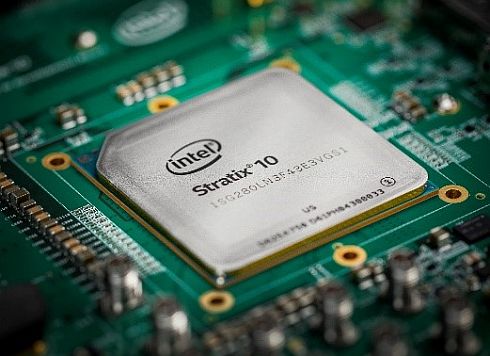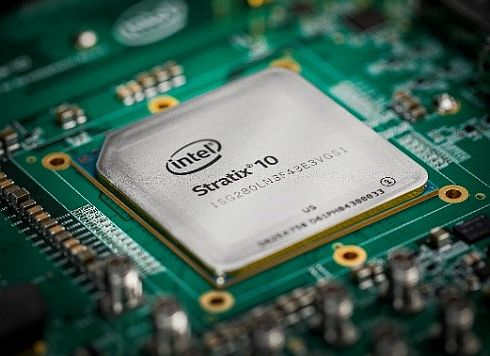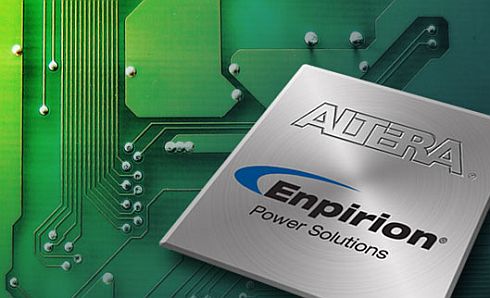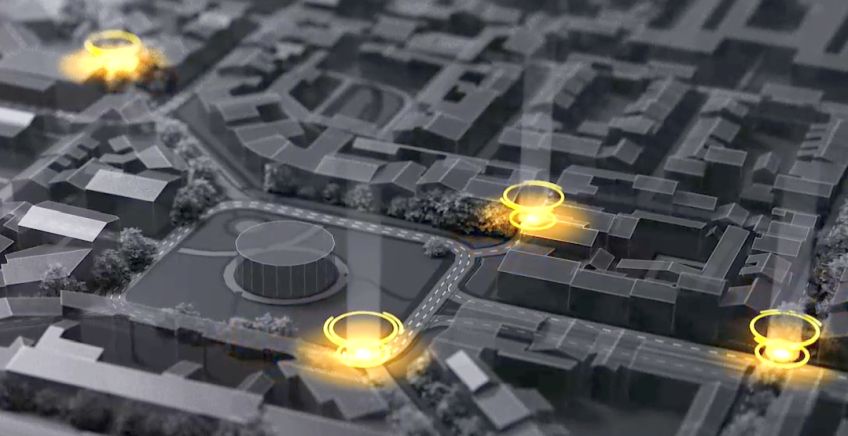Altera returns to the Israeli market – to protect its position there
10 December, 2016
Intel appointed Ilan Hochmann as Altera's general manager for sales in Israel. VP EMEA Sales Frank Foerster: “The Israeli market is one our strongest markets in Europe”

Intel appointed Ilan Hochmann as Altera’s general manager for sales in Israel. VP EMEA Sales Frank Foerster: “The Israeli market is one our strongest markets in Europe”

Intel appointed Ilan Hochmann Altera general manager for sale in Israel. Hochmann is one of the company’s most experienced distribution and sales managers. He recently served as Intel’s business development manager at Intel Israel, a position he manned since 2005.
Before joining Intel, Hochman was HP products manager at Binat. Hochman is no lightweight, and his appointment is a sign for Intel’s strategic decision to take on the Israeli FPGA component market. Intel main competitor in Israel is Xilinx. Hochmann’s appointment puts an end to a year of uncertainty – one year ago, Intel completed the biggest merger in its history – the acquisition of Altera for a staggering 16.7 billion dollar.
The Altera deal shocked the global FPGA market, ruled by Altera and Xilinx, which together controlled most of the middle and high end system market. The deal made many of Altera’s customers uneasy, as they puzzeled about its effect on the company’s roadmap, products and future policies.
The goal: expansion in the Israeli market
During 2016, Intel worked hard to assure Altera’s customers that nothing has changed: it founded the programmable solutions group. Working as an independent business unit, coordinating former Altera’s activities: independent management, sales and customer support. Yet in Israel, as long a bold step was not taken, uncertainty prevailed. Techtime met Vice President EMEA Sales Frank Foerster to learn more about Hochmann’s appointment.
Foerster attended a joint Intel Eastronics convention, dedicated to preformance acceleration by use of Intel CPU processors and Altera FPGA components. “The Israeli market is one of our biggest markets in Europe. Ilan will focus on expanding our activity in this market, as well as entering new fields such as cloud, 5G, artificial intelligence and more”.
What is your message to the Israeli attendants of the convention?
“We decided that the Israeli market is Important to us. We have many loyal customers here, and we are dedicated to the expansion of this market. We believe that FPGA is an innovation engine companies looking to accelerate the development and production of new products. Eastronics will continue to be are exclusive distributor. We have an excellent relationship with eastronics, and we will continue to support the Israeli market through them”.
 What is the FPGA’s role in Intel’s strategy?
What is the FPGA’s role in Intel’s strategy?
“We now find a FPGA in every place where a strong processor is required. It’s a very generic solution. In the communication field, we believe that FPGA components will be used across the board: from end devices, through communication infrastructure to cloud infrastructure. FPGA components can accelerate processing in each of these phases, and that is why we will find them everywhere – from the fringes to the very center of the cloud.
How are you affected by autonomous driving and 5G?
“Autonomous driving is just a part of wider field – artificial intelligence. FPGA components play an important role in AI systems, because the algorithms used by such systems are by nature FGPA components friendly. A lot of data enters the system. It is processed quickly, and then continues to flow”.
“5G is also a major growth engine for the FPGA world. Beginning with the fact that it supplies the link between the IoT world and the cloud, and this link requires lots of FPGA components in order to function. Even today, cellular base station contain a vast number of FPGA components. In addition – there is still no sealed 5G standard – and that means that the products have to be very flexible, something which can easily be achieved by the use of FPGA components.
Will you move from ARM to Intel architecture?
“We are fully committed to ARM based SoC solutions. In the FPGA field, we remain loyal to the ARM architecture”.
Do you face difficulties with the miniaturization process of FPGA?
“This is not true. There is no delay. In Q3 for example, we have already supplied customers with the first examples of v components, produced using 14 nanometer tri-gate transistor technology. This component showcases many technological achievements that will deeply influence the world of data-centers”.
“Bringing Altera into the Intel universe gives customers a lot more added value than just miniaturization. The FPGA is being integrated into Intel’s ecosystem. One of the first steps Intel took after the deal was completed, was to add more than 300 engineers to Altera’s R&D unit”.

What’s next?
“We are currently working on truly revolutionary ideas. One of these is a new solution dubbed Enpirion, aimed to simplify and streamline the FPGA power supply system. This will minimize the size of the power supply system, as well as make it easier to manage, and of course – more efficient. We are expanding the range of supported capacities, and will soon release a first product with loads of up to 30 Amps”.
“Intel takes the FPGA and connects it to the server processors. We recently demonstrated a new solution, which will soon come out, based on the Multi component Package idea. It’s a new package containing an advanced Xeon server processor and FPGA component, designed to supply an optimized solution to stream line data centers. This will be a new line of designated processors for data centers. I can tell you, that this solution is attracting a lot of attention from customers building large data centers”.
Posted in: Electronic Components , Featured Stories , News , Semiconductors


